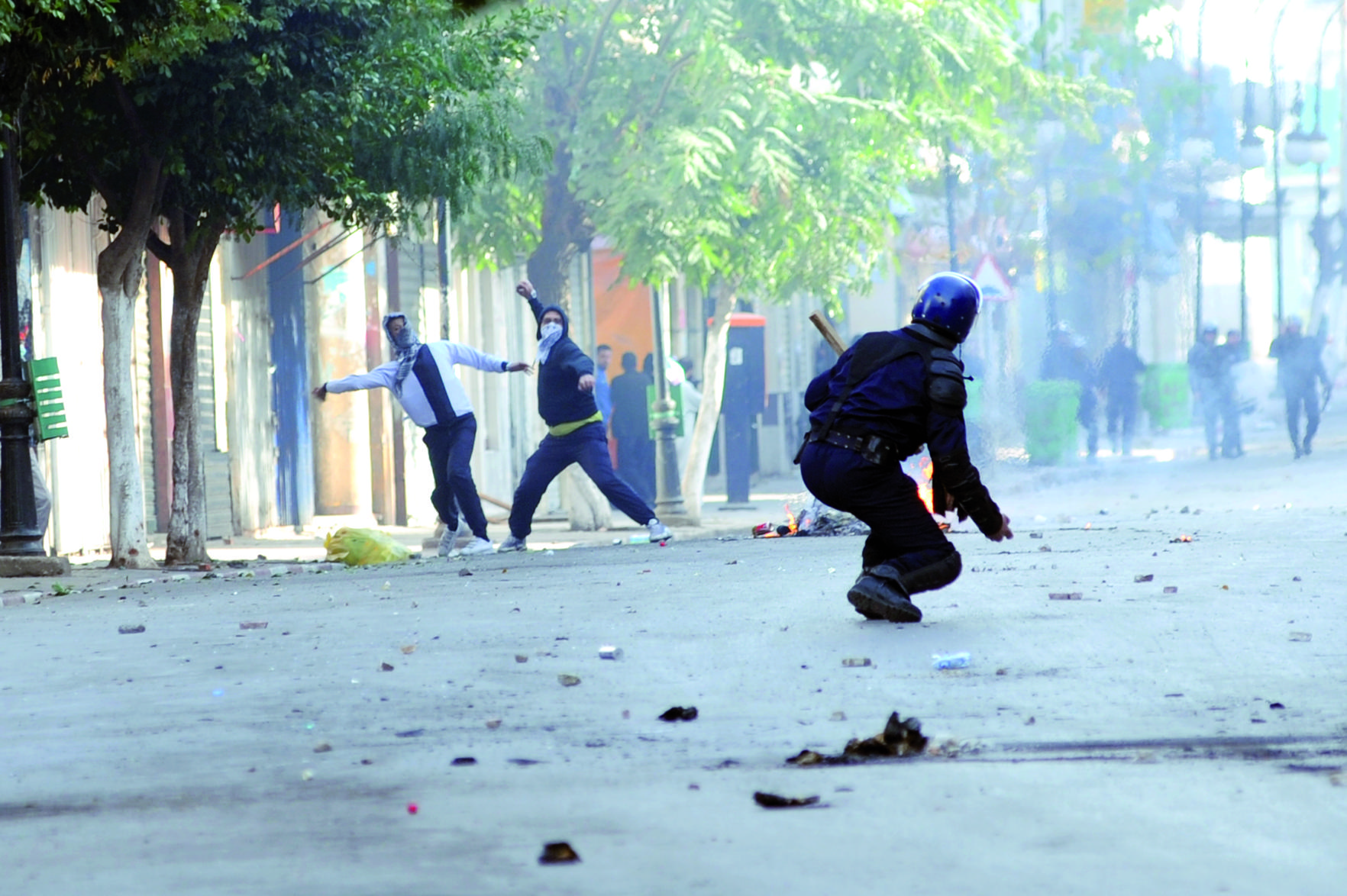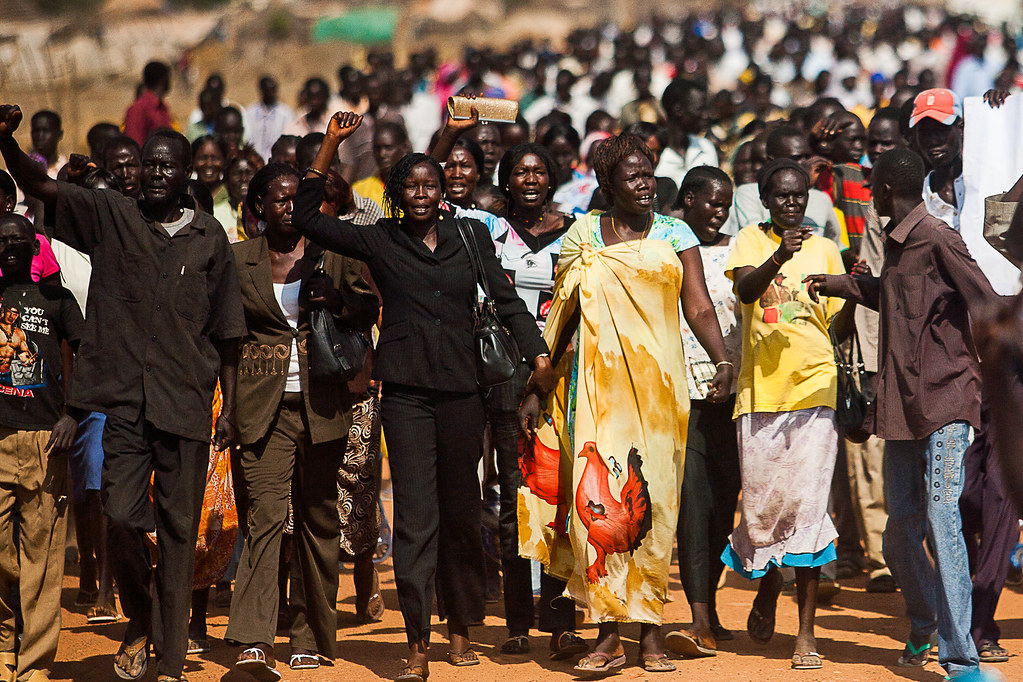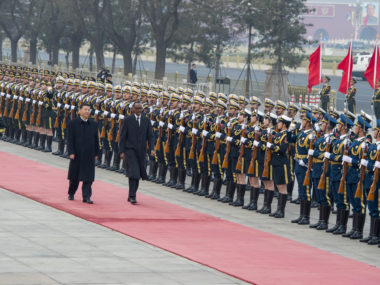Guest post by Joseph Weinberg

In a recently published article, Ryan Baker and I made an argument about the role of food prices in determining the likelihood of political violence. Like others, we were inspired by the food riots that accompanied the global food crisis of 2007-8 and the reverberations through the Arab Spring of 2011. However, we hoped to extend the argument beyond these periods of international crisis to the daily politics of food and security. We maintain that since food prices are highly visible and easily interpreted signs of economic well-being, they are more likely to provoke public outcry than when changes occur elsewhere in the economy. To the extent that governments can insulate their citizens from the dramatic fluctuations in price, they are less prone to the type of violence that was seen during the recent food crisis.
Nearly 40 countries have experienced some form of a “food riot” in the past decade, and the prediction for future riots are dire to say the least. Environmental degradation, population growth, and the associated food shortages will lead to no less than the end of the world as we know it as soon as 2040 according to a recent study by the Global Sustainability Institute.
In this scenario, it seems there is little that can be done to stave off total social collapse. In the same vein, one could argue that the international price spikes that generated riots in 2008 and 2011 were equally unavoidable.
To some extent, a government overthrown by a violent and hungry mob is just as much a victim as their citizens. The international market distortions caused by developed world agricultural and petroleum policies are partially to blame for international food insecurity. However, in many ways, these governments have helped to hasten their own demise by explicitly intervening in food markets.
In order to protect citizens from the volatility of food prices, most countries have instituted some type of safety net to dampen the effect of any future price spikes. Many of these policies are responsible and forward thinking, but many of them are just another way politicians make promises they can’t possibly keep.
It is a bold (or delusional) politician who promises that he or she can control international commodity prices. However, the extent to which such promises may come back to haunt the government depends on the audacity of the claim.
The more a government promises its citizens, the greater the chance it will eventually have to break that promise. If a government claims to its citizens that it will guarantee food as a civil right (as written in Kenya’s constitution) or guarantee food at a certain price (as with Egypt’s bread voucher system—one of many in the region) than it has bound itself inexorably to such a provision. If prices remain low, it is because of the government and they will reap the rewards. But if prices go up, it must also be because of the government, and they must suffer the consequences.
Grain subsidies provided by the Indian government have long kept prices down for many key staple foods, and but have proved wasteful and deleterious to the well-being of the nation’s agriculture industry. Egypt has depleted its foreign reserves to provide virtually free bread (less than one US cent per loaf) through a system of subsidized bakeries. Hugo Chavez’s promise of “just pricing” of foodstuffs led to a series of economic disasters that would have been almost humorous had the outcomes not been so detrimental to the country and its people.
Venezuela is only now finding out what Egypt and India have recently learned, which is that as bad as these policies have been, they are even more difficult to reform. Recent unrest in India, Egypt and Venezuela is less obviously tied to food prices than the violence of 2008 or 2011, but still demonstrates the political implications of a government’s inability to provide for its citizens.
The next international economic crisis may generate another wave of food riots, but in the meantime, we can expect them anywhere that governments have overextended themselves to keep unrealistic promises. The costs of cheap food are paid through distorted agriculture markets (India), debt burdens (Egypt), or inflation (Venezuela). Eventually, these programs must be eliminated and even (comparatively) affordable food can appear outrageously priced when this happens.
Juvenal was lamenting the state of Roman politics when he suggested that political leaders could silence dissent and placate the citizenry by keeping them fed and entertained. Nevertheless, many leaders seem to have misinterpreted this lamentation as advice. Any short term political gains afforded by such provisions are difficult to maintain and even more difficult to remove. The economic burdens that accompany the promise of a “free lunch” may ultimately be their undoing.
Joseph Weinberg is an Assistant Professor of Political Science, International Development & International Affairs at the University of Southern Mississippi.






7 comments
I can understand the problem with price controls, but the problem with government subsidies for lowering and stabilizing the price of food, or any other goods, is obscure. Governments transfer money and other forms of value all the time without destroying themselves or the states they govern, as long as they have some source of income enabling them to afford the transfers. (if they cannot afford them, then of course that is a problem, but it has as much to do with other expenditures and payoffs as with food.) I fear we are being given a dose of neoliberal theology here.
So the public starves because they can’t afford food, or spends an increasingly large portion of their salary on it, and either drives them to resistance movements anyway – not to mention the human toll, because poverty kills just as well as bullets.
How is that a good thing?
So when these subsidies are cut, the public starves for lack of food, or spends an increasing portion of their meager salaries on it, driving them to resistance movements as surely as the government not being able to afford to keep its promises. And in the best case scenario, poverty kills just as well as violence.
How is any of this a good idea?
The writer assumes that all political leaders take actions to feed their fellow citizens in order to benefit from “short term political gain”. That perception provides evidence of how cynical and lacking in basic compassion people have become in parts of the world. Perhaps people would do well by making the case for defining the achievable goal of no human being suffering from inadequate food. In some circles food is a God-given right, not a for-profit commodity or worse – a weapon.
If a government can’t guarantee it’s citizenry the ability to eat, then what good is it? Of course it will be overthrown–it should be. Enshrining the right to food in a country’s constitution, as Kenya apparently has, hardly seems problematic. It may be that there are preferred ways to prevent the citizenry from going hungry–in the U.S. we have food stamps. In other countries there are labor laws such that people’s earnings are sufficient to buy food for themselves and their families. There are many ways a government can intervene to ensure its people have food. But to suggest that ensuring the citizenry has food is not a legitimate role of government–well, it makes me wonder what these authors think a government should do.